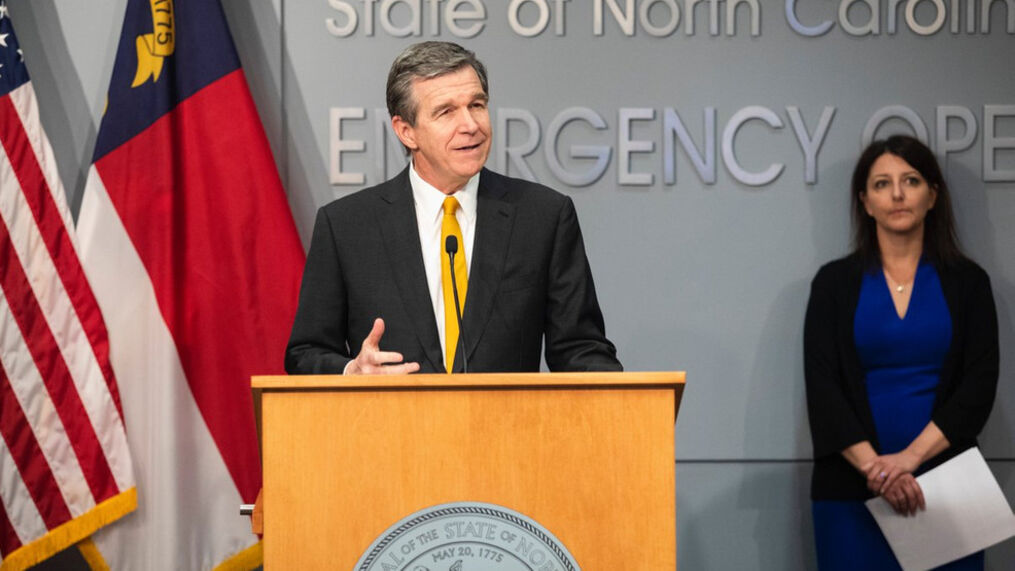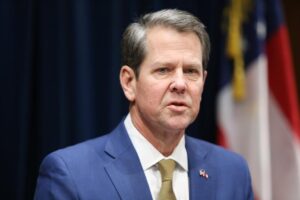Senate passes North Carolina budget; Cooper says he will sign it

North Carolina Gov. Roy Cooper said Tuesday he will sign the state’s spending plan for the next two years, signaling the end of months of negotiations.
The North Carolina Senate gave initial approval Tuesday to the two-year, more than $50 billion state budget, which also cuts $3.2 billion in taxes over the biennium and billions more years after. It allocates more money to education and increases teacher pay, with a historic amount for infrastructure and savings.
The Senate’s 40-8 vote came more than four months after the start of the fiscal year July 1. The budget proposal also must be approved by the House. Cooper is expected to sign it into law by the end of the week.
“I will sign this budget because, on balance, the good outweighs the bad,” Cooper said Tuesday during a news briefing ahead of the Senate vote. “It moves North Carolina forward in important ways, many that are critical to our state’s progress as we are emerging from this pandemic.”
If the proposal becomes law, North Carolina will spend $25.9 billion in the current fiscal year, representing a 4.3% increase over the previous fiscal year, and $27 billion in 2023, representing a 4.1% increase over the proposed 2022 budget. It also would reduce the governor and attorney general’s authority.
The proposal includes a provision to limit the governor’s ability to shut down the economy because of an emergency. Republican legislators have made three attempts to pass duplicate bills that mirror the provision. All of the attempts have failed, with Cooper vetoing two. The third bill did not make it to a full vote.
Legislative leaders also inserted a provision that would require legislative leaders to sign off on lawsuit settlements involving the General Assembly. Cooper vetoed a bill that mirrors the provision in September, calling it “unconstitutional and unwise.”
Cooper stood by his view of the provisions Tuesday, but he still is committed to signing the budget bill.
“I believe that the provision is unconstitutional and will be held unconstitutional in court,” Cooper said.
The bill includes a record $8 billion infrastructure plan, including adding $6 billion to the State Capital and Infrastructure Fund. The proposal directs $4.25 billion to North Carolina’s rainy day fund and another $800 million for disaster relief. It also increases base K-12 education spending by $1.5 billion, pushing the budget line close to $11 billion.
Under the measure, the state would cut $3.5 billion in taxes for the next two years and $13 billion for the next five. The proposal would increase the state’s zero-tax bracket from $21,500 to $25,500. It cuts the personal income tax rate from 5.25% to 3.99% by 2027, starting with 4.99% in 2022. It increases child tax deduction by $500 per child and eliminates state income tax on military pensions.
The bill also reduces the franchise tax base for corporations and phases out the corporate income tax over six years, beginning in 2025. It makes expenses paid with Paycheck Protection Program loans tax deductible.
“This budget continues the Republican-led legislature’s decade-long commitment to low taxes and responsible spending,” Senate Leader Phil Berger, R-Rockingham, said in a statement. “The multibillion dollar surpluses these policies helped create are evidence that they’re working, and it means we can cut taxes even more.”
The budget plan also makes use of federal American Rescue Plan Act funding. Lawmakers would use $545 million for 5% bonuses for teachers and state employees. Teachers will receive an average 6.7% pay increase over the biennium and up to $2,800 in bonuses. The proposal also secures $15 an hour for noncertified school and community college personnel.
The Senate must approve the bill with a third vote before passing it along to the House.
Senate Minority Leader Dan Blue, D-Wake, and Cooper said the budget does more good than bad. Blue said the tax cuts in the proposal could hurt the state. He urged his colleagues to find an “economic driver” that could offset the cuts.
“I want to say that that I had higher hopes for this budget, both in the process and the end result, but I know what the reality of compromise is,” Blue said. “This is the reality of compromise and governing, and I accept that. We move further down the road, and I think that we’ve done that we could do better than this.”
This article was originally posted on Senate passes North Carolina budget; Cooper says he will sign it







